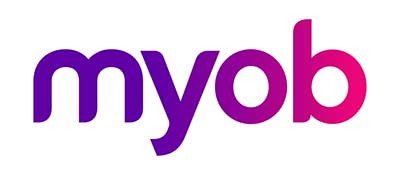More than 2 million Australians report rental income on their tax returns each year. When we factor in the many rental properties owned by other structures (e.g. partnerships, trusts, companies, SMSFs, etc.), it’s pretty clear – rental properties are kind of a big deal. For tax purposes, there’s 2 types of rental properties, positively geared and negative geared. The question every current and potential property investor needs to know the answer to is, which one’s better?
Gearing Explained
Before we look at whether a positively or negatively geared rental property is better, it’s probably worth clarifying exactly what these things mean. Most property investors will buy or construct a property, then rent it to a tenant and incur a bunch of costs each year. Some of the common costs incurred on any rental property are agent fees, council rates, insurance, loan interest, repairs & maintenance, water rates, etc. If the rental income each year is more than all the costs, then the property is positively geared. If the rental income is less than all the costs, then the property is negatively geared.
A property’s gearing often changes over time. Most investors will generally borrow a large chunk of the purchase price when they buy a rental property. In the early years, this creates large loan interest deductions which are usually bigger than the corresponding rental income. This means a lot of rental properties usually start out as negatively geared. Over time, the rental income on the property generally goes up and the loan interest goes down as the loan is gradually repaid. This means that most rental properties will end up transitioning from negatively geared to positively geared, given enough time.
Why does it matter?
Net rental income is included for tax purposes for the owner of the property. For positively geared rental properties, this will increase the taxable income of the owner and will likely result in more tax payable. For negatively geared rental properties, this will reduce the taxable income of the owner and will likely reduce tax payable.
The verdict
So… which one’s better? Well, that’s not such a straight-forward question. No doubt, at tax-time, everyone would rather a tax refund than a bill. But is it really worth spending $10,000 per year to get a $3,500 tax refund? Or would it be better to receive $10,000 per year and end up with a $3,500 tax bill? My rule of thumb is to never to do anything purely to get a tax deduction – technically speaking, if you do, it’s actually tax avoidance (i.e. illegal). When it comes down to it, there’s a number of things that need to be taken into consideration to make the right decision:
- Structure – what type of entity or entities will be purchasing the property? I.e. individual, partnership, trust, company or SMSF? Different tax rules and rates apply to different entities. E.g. a $20K negatively geared property will likely result in a significant tax refund for an individual, however a trust won’t be able to obtain any immediate tax benefit from this, since trust losses can’t be passed on.
- Legal Interest – rental income and expenses need to be split based on the legal interest of the property, regardless of who receives or pays what. This is based on what ownership proportions are shown on the title deed, which are locked in when the property is purchased. So, if a husband & wife buy a property 50:50, that ownership % is locked in, even if it doesn’t result in the best tax outcome down the track. It can be changed, however this change will likely trigger stamp duty, capital gains tax and legal costs.
- Current & Projected Incomes of the Buyer(s) – The default ownership split between a husband & wife will be 50:50 (unless the buyers specify otherwise). It’s worth considering, however, how the taxable incomes of both people may change during the ownership period. This might potentially affect the most desirable ownership split.
- Capital Growth – from an investment perspective, it’s easy to view the net rental income as the only return on the investment. Investors also need to factor in the likely capital growth of the investment (i.e. how much the property is likely to go up in value) as well. E.g. a $10K negatively geared rental property is a lot more bearable if the potential sale price is likely to go up $20K over the same period.
- Capital Gains Tax – whilst the net rental income or loss on the rental property is taxed each year, any profit on the sale of the property will also be taxed in the year the property is sold. Generally speaking, the capital gain will add on to the owner’s other income and be taxed at their relevant tax rate. For an individual earning $200K, a $500K capital gain will result in a substantial amount of tax. The parties who pay this tax are also determined based on the legal interest recorded on the title deed.
- Joint Tenants or Tenants in Common – there are 2 options for recording the legal interest when any property is purchased, “joint tenants” or “tenants in common”. For recording uneven ownership splits (e.g. 80:20), tenants in common is the only option. For equal ownership splits (e.g. 50:50 or 25:25:25:25) either option is available. If 1 of the owners of a property owned as joint tenants dies, their ownership interest is automatically transferred to the surviving owner(s). This could result in very unfavourable outcomes where the owners don’t have a good relationship. If the property is owned as tenants in common, the deceased person’s interest in the property is transferred into their estate (and potentially dealt with according to their will).
- Investment Horizon – any potential rental property investor should have a rough idea of how long they plan on owning the property. This will be dependent on many things – their age, income, investment portfolio, anticipated investment performance, etc. If they know how long they intend to own the property, this can assist in calculating and choosing the best outcome for tax purposes.
- Use of Property – in an ordinary rental property investment scenario, an investor might simply buy a residential property and sell it at some point. But not every scenario is simple. Things can get more complicated where:
- The property is a commercial property intended for use by a related business
- The investor intends to use the property as a holiday house at times
- The investor plans to move into the property when they retire
- The investor intends to rent the property to a related party
- The investor plans to live in the property at any point
Property and tax can be complex… the only way to make sure you get it right is to speak to a professional about your personal circumstances before you make big decisions.








